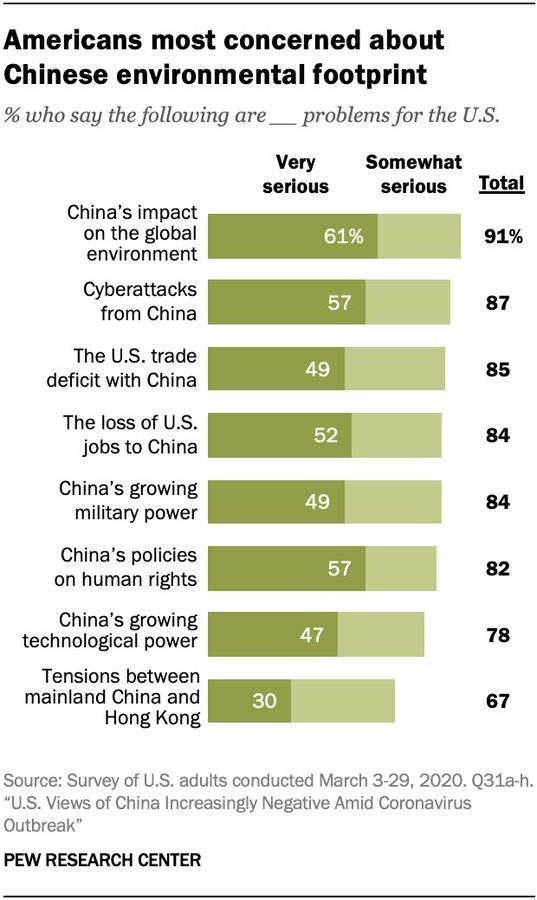 China, Iran and Russia are using the coronavirus crisis to launch a propaganda and disinformation onslaught against the United States, the State Department warns in a new analysis, POLITICO’s Betsy Woodruff Swan reports;
China, Iran and Russia are using the coronavirus crisis to launch a propaganda and disinformation onslaught against the United States, the State Department warns in a new analysis, POLITICO’s Betsy Woodruff Swan reports;
The report, which is not public, was produced by the department’s Global Engagement Center — a fledgling office focused on the global information wars — and reviewed by POLITICO. It makes the case that propaganda and disinformation narratives from those country’s governments have converged as coronavirus has spread. And it says that while the three governments have pushed out the same messages in the past, the global pandemic has seen the convergence of their messaging accelerate.
“What we saw as the health crisis started to come under control in China is that the CCP really started pushing a concerted effort to try to re-shape that narrative,” said the GEC’s Lea Gabrielle. “So in a short period of time the CCP went from letting Russian disinformation claiming the U.S. was the source of the virus proliferate in Chinese social media, to raising questions on state media about the origin’s source, to promoting disinformation that the U.S. was the source of the virus.”
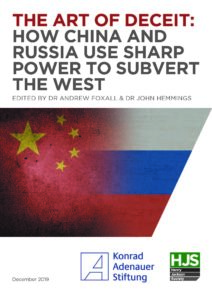 The sharp power campaigns around the coronavirus pandemic has confirmed the convergence of Russian and Chinese interests, and their desire to weaken the EU and the United States, notes a new analysis from a leading Central European think tank.
The sharp power campaigns around the coronavirus pandemic has confirmed the convergence of Russian and Chinese interests, and their desire to weaken the EU and the United States, notes a new analysis from a leading Central European think tank.
Ultimately, these activities aim to support changes in the world order, in which China (in cooperation with Russia) would seek to take over global leadership and control of institutions within the UN system, says the Polish Institute of International Affairs (PISM). This would mean undermining the principle of sovereign equality of states, protected by international law, and privileges for selected countries. Although there is no evidence of China’s direct cooperation with Russia, similar content in both states’ disinformation campaigns reinforces their message about the weakness of Western institutions. RTWT
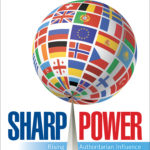
National Endowment for Democracy (NED)
China’s geopolitical ambitions were examined in several recently released written testimonies for a postponed congressional hearing on “A ‘China Model’? Beijing’s Promotion of Alternative Global Norms and Standards,” China Digital Times – a partner of the National Endowment for Democracy (NED) – reports.
The National Bureau of Asian Research’s Nadège Rolland, for example, outlined the underlying strategy in her prepared statement:
Chinese official representatives have not openly offered more explicit descriptions of their ideal view of China’s role in a new world order under its helm – partly because they are not entirely certain themselves, partly out of obfuscation. Their vision for an alternative model can only be inferred from a close inspection of the internal cogitations of CCP strategists and theorists.
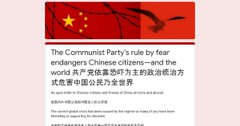 […] China’s vision for a new world order points to two main areas of priority for Beijing: the global South and the existing international institutions. In both areas, Beijing’s main objective is the weakening of liberal democratic norms, as a proxy for eroding U.S. influence and asserting China’s instead. [Source]
[…] China’s vision for a new world order points to two main areas of priority for Beijing: the global South and the existing international institutions. In both areas, Beijing’s main objective is the weakening of liberal democratic norms, as a proxy for eroding U.S. influence and asserting China’s instead. [Source]
Testimony from the Center for Strategic and International Studies’ Jonathan E. Hillman placed China’s cultivation of influence at established institutions in the context of a broader strategy, alongside the creation of alternative institutions and the pursuit of bilateral deals, including those made “beneath the BRI’s multilateral veneer”:
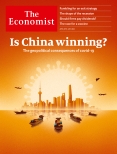 […] Three guiding principles follow from the observations above. First, the United States should strengthen existing institutions. While new alternatives generate more attention, and often more anxiety, existing institutions remain more important. That’s why China is investing heavily in them. Although China is the proximate cause for renewed interest in the UN and other international organizations, rekindling U.S. commitment to these institutions is worthwhile regardless of whether China is placing its candidates in positions of authority within those institutions. [Source]
[…] Three guiding principles follow from the observations above. First, the United States should strengthen existing institutions. While new alternatives generate more attention, and often more anxiety, existing institutions remain more important. That’s why China is investing heavily in them. Although China is the proximate cause for renewed interest in the UN and other international organizations, rekindling U.S. commitment to these institutions is worthwhile regardless of whether China is placing its candidates in positions of authority within those institutions. [Source]
The Pew Research Center (see below) reports that 61% of Americans say China’s environmental footprint is a very serious problem for the U.S. while 57% say the same about Beijing’s human rights policies.
Civil society is playing a vital role in countering disinformation, Carnegie analysts Saskia Brechenmacher, Thomas Carothers and Richard Youngs write in a new report, Civil Society and the Coronavirus: Dynamism Despite Disruption:
 In Brazil, where President Jair Bolsonaro continues to downplay the seriousness of the crisis, civil society groups have joined together in a new national coalition to spread awareness of the virus in the country’s poorest neighborhoods using the hashtag #coronanasperiferias (#coronaintheperipheries). In Senegal, the youth movement Y’en a Marre (Fed Up) has switched gears from advocating for transparent and democratic governance to disseminating songs that promote social distancing. Various Polish NGOs are focusing on debunking common conspiracy theories about the pandemic.
In Brazil, where President Jair Bolsonaro continues to downplay the seriousness of the crisis, civil society groups have joined together in a new national coalition to spread awareness of the virus in the country’s poorest neighborhoods using the hashtag #coronanasperiferias (#coronaintheperipheries). In Senegal, the youth movement Y’en a Marre (Fed Up) has switched gears from advocating for transparent and democratic governance to disseminating songs that promote social distancing. Various Polish NGOs are focusing on debunking common conspiracy theories about the pandemic.
